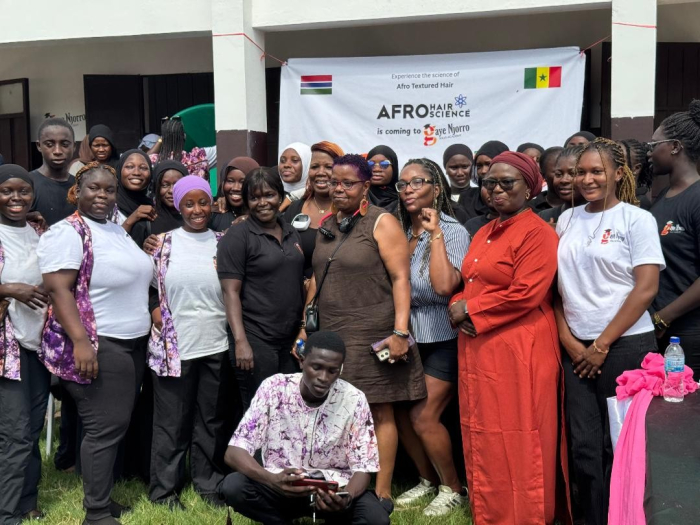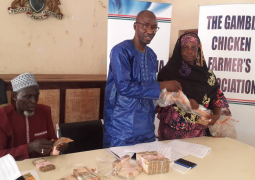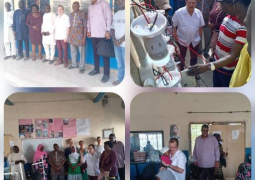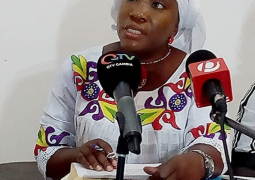
Fatou Seine Gaye, Chief Executive Officer (CEO) of Gaye Njorro Skills Academy, shared the story of her long-standing partnership with U.S.-based cosmetologist LaDosha Wright, which she said, began more than a decade ago.
Gaye, whose passion for youth and women’s empowerment has inspired hundreds of young Gambians to find confidence and careers through vocational education, recalled that in 2011 she was invited to the US through the US Embassy to speak about hair and accreditation.
“People often think Africans just know how to do hair naturally, but there’s real science behind it - you need to understand the scalp, the hair, the chemistry, and the health before you style.”
She explained that that realisation led to a journey of advocacy, training, and recognition.
“Today, Gaye Njorro Skills Academy is a NAQAA-accredited institution, licensing and certifying cosmetologists under the National Accreditation and Quality Assurance Authority (NAQAA).”
She added that the Textures Exchange is an extension of her lifelong mission: empowering women and youth through practical education.
“When I see women succeed, I believe a nation can be built,” she said. “At Gaye Njorro, we train young women not just to work, but to think, create, and lead.”
For Ladosha Wright, a licensed salon owner, author, and Afro hair activist, this collaboration is not just about beauty, it’s about reclaiming identity and professionalism.
“Our mission here is to teach the science of Afro hair,” Wright explained. “We want students to improve consultations, solve scalp and hair issues, recommend the right products, and build confidence in their craft. It’s about being seen not just as people who ‘do hair,’ but as educated cosmetologists who understand hair health.”
She said the science behind Afro-textured hair traces back to pioneering research by Dr. Willie Morrow, an African-American barber and scientist who worked with the U.S. Pentagon in the 1960s to study hair and skin challenges among men of color.
“It’s time to bring that science home. After centuries of separation, this exchange reconnects us through culture, education, and pride.”
She said that the Academy now offers training in cosmetology, tailoring, culinary arts, and design; equipping students with tangible skills for immediate employment.
The intercultural exchange, she added, is based on the principle of “one teach, one” where both Gambian and international participants learn from each other’s expertise.
Another partner in the exchange, Julanda Zachary, praised the Academy’s holistic approach to vocational training.
“What Fatou has built here is extraordinary,” Zachary said. “In America, vocational skills like tailoring and hospitality are in high demand, yet rare. These students are learning practical, profitable skills that can change their lives immediately.”
Zachary, who has worked in hospitality for over 15 years, shared her plans to train students in casual fine dining and professional service, describing it as both an art and a business opportunity.
“Serving food, presenting it well, and treating customers with care that’s hospitality,” she said. “And it’s something you can do anywhere in the world.”
“We’re showing the world that African beauty is science, culture, and power,” she said with a smile. “And when women rise, the nation rises with them.”
Read Other Articles In National News

Dul Hijjah crescent moon sighted; Eid Al-Adha to begin on July 9
Jun 30, 2022, 12:34 PM




